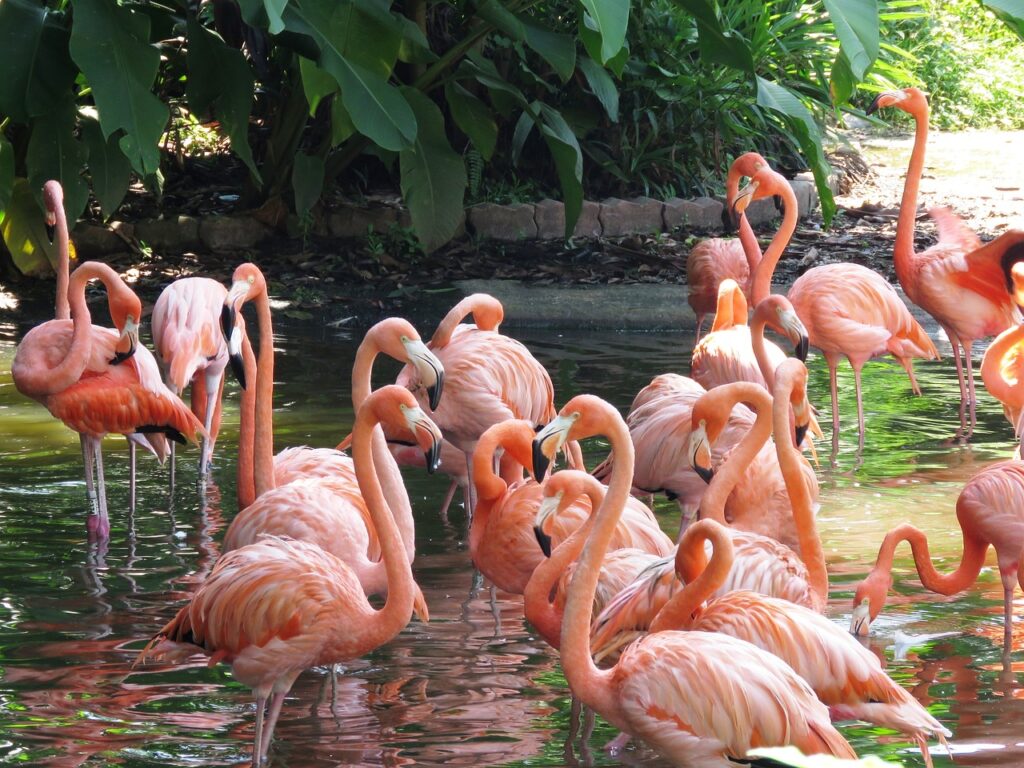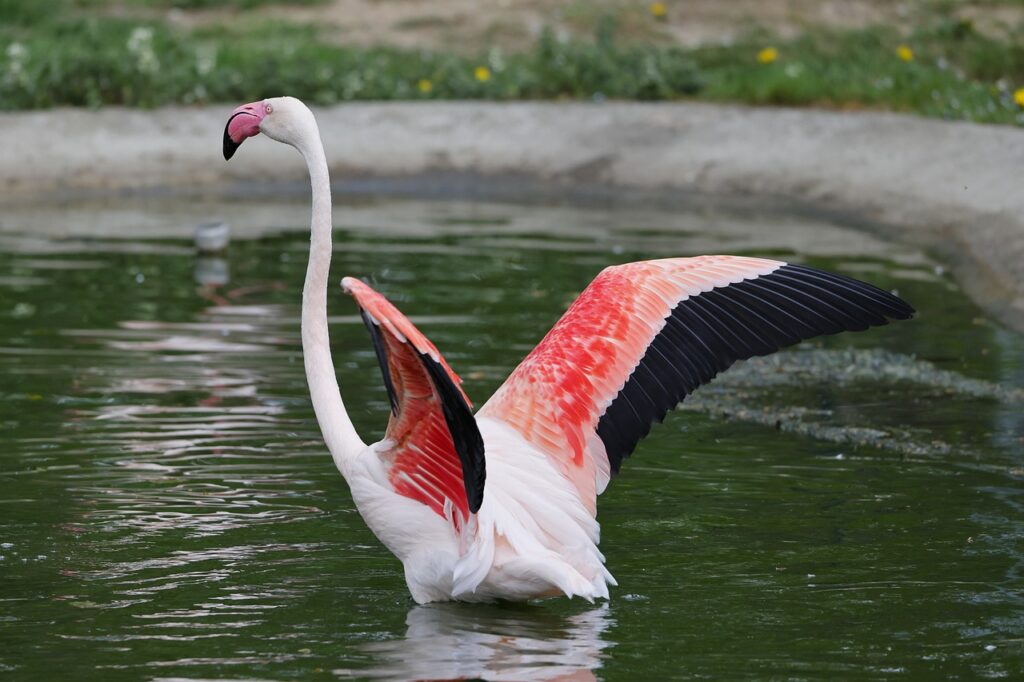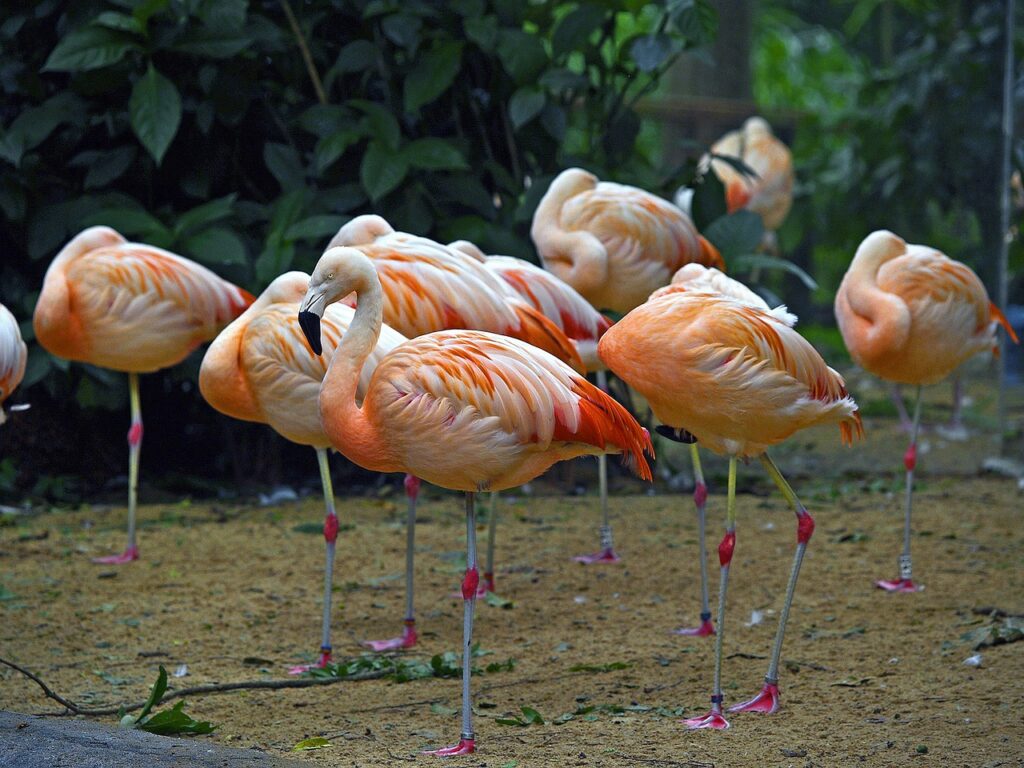The greater flamingos move between lagoons and ponds throughout the year, searching for food, usually at night and in a flock. They communicate in many different ways with each other, including the wing salute, when they spread their wings out for a few seconds, showing off their colors. They also stretch their necks and flip up their tails.

Habitat
Flamingo (Phoenicopterus roseus) is a species of starling in the family Phoenicopteridae. This birds lives in Africa, the Indian subcontinent, the Middle East, and in southern Europe. Its natural habitats are Mudflats and shallow coastal lagoons with salt water. This species has Least Concern status according to the IUCN Red List. It is because this birds can adapting well to human development.
Characteristic
Having a big body, weigh about 4 kg with 120-150 cm body length. They have life span approximately 50 years. Male flamingos are slightly larger than females, weighing more and having longer wingspans; however, visual sex determination of flamingos is unreliable.

Flamingo colonies may breed at different times of the year. Breeding success is based on synchronous nesting of a flamingo colony so that chicks of a colony hatch around the same time in any one year. Colonies very rarely nest more than once a year.
Breeding and nest building may depend on rainfall and its effect on food supply.For the reproduction, both male and female incubate the egg, for 27-31 days, and both care for the young.
Diet and Behavior

Flamingos are classified as omnivorous birds, and they will filter and eat whatever nutritious organisms they can find in their lake or lagoon habitats. This includes both algae and meat of various kinds, primarily molluscs, crustaceans and other shellfish, insects, larvae and small fish.
Whilst some species of flamingos are more adept at filtering more significant non-algae foods, all flamingos are omnivores. These birds generally spend their days feeding, sleeping, resting, bathing, swimming or migrating. When flamingos sleep, they rest their heads on their back.
We should protect the Greater Flamingos and all wildlife so they don’t go extinct in the wild. So, let’s learn about birds and get involved in animal welfare with Bali Safari Park!






